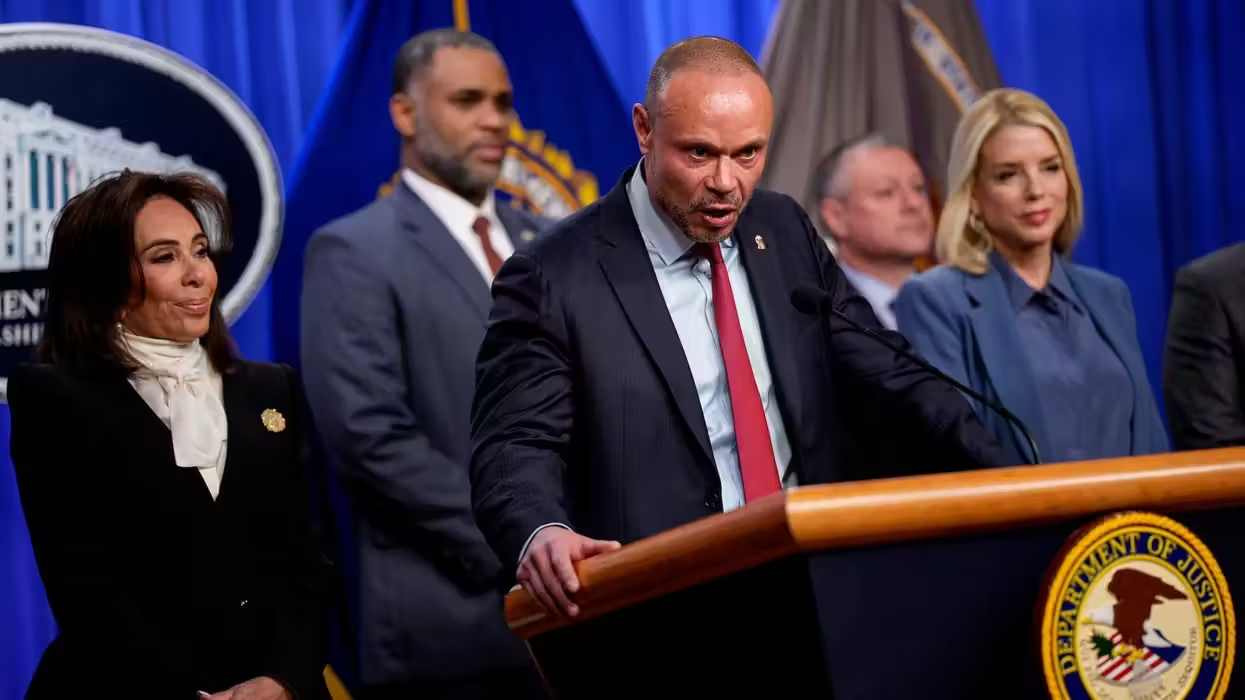© 2025 Blaze Media LLC. All rights reserved.
St. Augustine once famously said, "Lord make me chaste, but not yet." A similar mantra could be adopted by the Obama administration regarding the new health care law: we're implementing new legislation, but not yet -- and not for all.
On Thursday, it was reported that 30 businesses will be getting one-year exemptions from portions of the new law, specifically the requirement to raise the minimum annual benefit included in low-cost health plans, used generally to cover part-time or low-wage employees.
USA Today reports that the decision was made by the Department of Health and Human Services to grant the exemptions in in late September, ensuring that some workers with low-cost plans wouldn't lose coverage from employers who might choose to drop health insurance altogether instead of raise the amount of coverage. In short, "the [low-cost] plans will be exempt from rules intended to keep people from having to pay for all their care once they reach a preset coverage cap."
Among those exempted is McDonald's, which reportedly threatened to drop coverage for nearly 30,000 workers if it was not granted such an exemption. McDonald's later denied making the threat, but now is benefiting from the administration's relaxing of the requirement. Among the others receiving exemptions are Jack in the Box and a New York teachers’ union.
While the move may save some from losing coverage altogether, critics say that it could be a sign of weakness from the Obama administration. As the New York Times reports, such early exemptions "offer the first signs of how the administration may tackle an even more difficult hurdle: the resistance from insurers and others against proposed regulations that will determine how much insurers spend on consumers’ health care versus administrative overhead, a major cornerstone of the law."
Hot Air's Ed Morissey argues that the exemptions have reduced Obamacare to a contest where whoever squeaks the loudest gets the oil:
By granting a few dozen waivers at the outset, though, the White House has amplified the uncertainty and arbitrariness in ObamaCare even further. At least insurers and employers had a figure that they could use for planning. Now there is no standard at all, except for whatever Kathleen Sebelius decides she likes — and whom she wants to favor.
He notes that the success of any law requires a commitment to its enforcement. With arbitrary exemptions being thrown around, and because of a lack of clarity from the law's inception, the legislation could be creating what it claims to have solved: an unequal playing field.
"One of the problems with massive, complicated government regulations is that they create a lot of room for regulator discretion, and therefore a lot of room for unequal treatment of different players in the market," Yule Levin writes over at National Review.
Levin explains that the exemptions themselves are "good news, since the rule would have forced these companies to drop their employee coverage, leaving almost a million workers without the insurance they had before Obamacare." However, it now means increased government control: "these companies now need permission from the administration to offer their employees a benefit they have offered for years."
In general, even though some employees are going to be able to keep their low-cost plans because their companies lobbied hard enough, there are still many workers whose companies will be forced follow through with what McDonald's threatened to do: drop insurance coverage.
That flies in the face of the administration's promise that if you like the insurance you have now, you can keep it.
"This shows what happens when people with no experience in an industry decide that they can construct it better than the market has structured itself," Morissey says.
Want to leave a tip?
We answer to you. Help keep our content free of advertisers and big tech censorship by leaving a tip today.
Want to join the conversation?
Already a subscriber?
Jonathon M. Seidl is a former managing editor of Blaze News and a best-selling author and speaker. His next book, “Confessions of a Christian Alcoholic,” will be released on October 7, 2025.
Jonathon M. Seidl
Jonathon M. Seidl is a former managing editor of Blaze News and a best-selling author and speaker. His next book, “Confessions of a Christian Alcoholic,” will be released on October 7, 2025.
more stories
Sign up for the Blaze newsletter
By signing up, you agree to our Privacy Policy and Terms of Use, and agree to receive content that may sometimes include advertisements. You may opt out at any time.
Related Content
© 2025 Blaze Media LLC. All rights reserved.
Get the stories that matter most delivered directly to your inbox.
By signing up, you agree to our Privacy Policy and Terms of Use, and agree to receive content that may sometimes include advertisements. You may opt out at any time.






